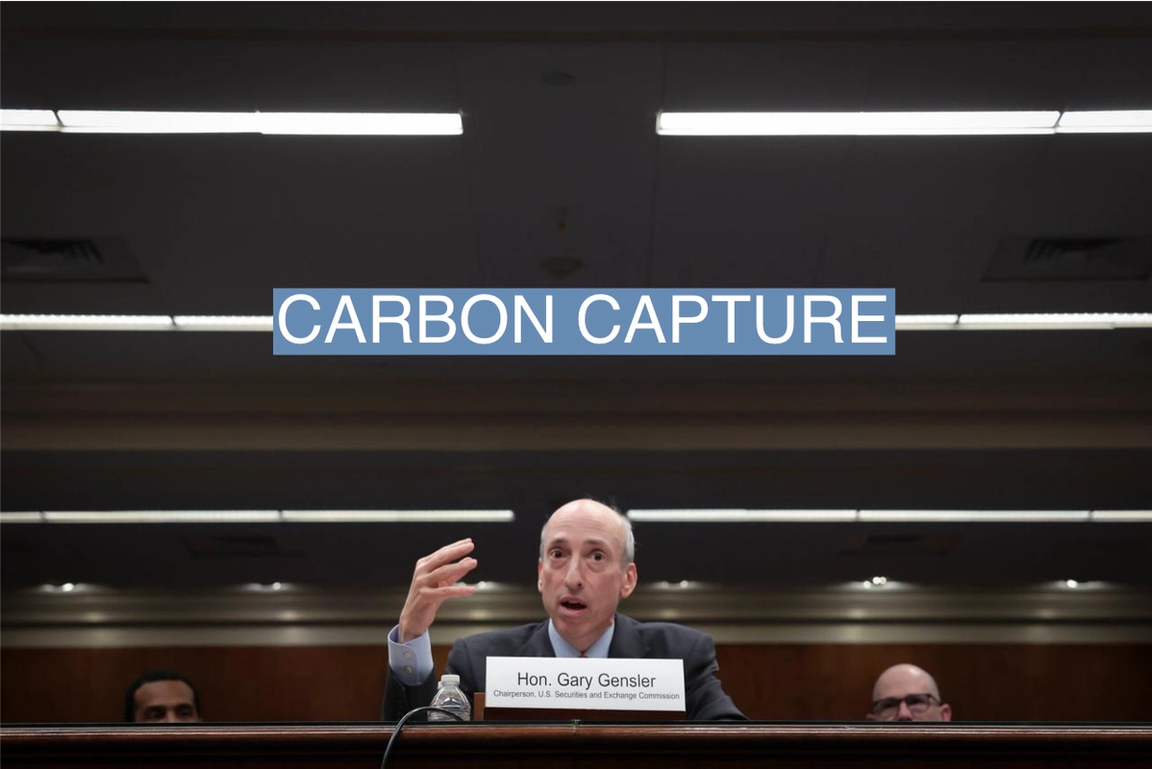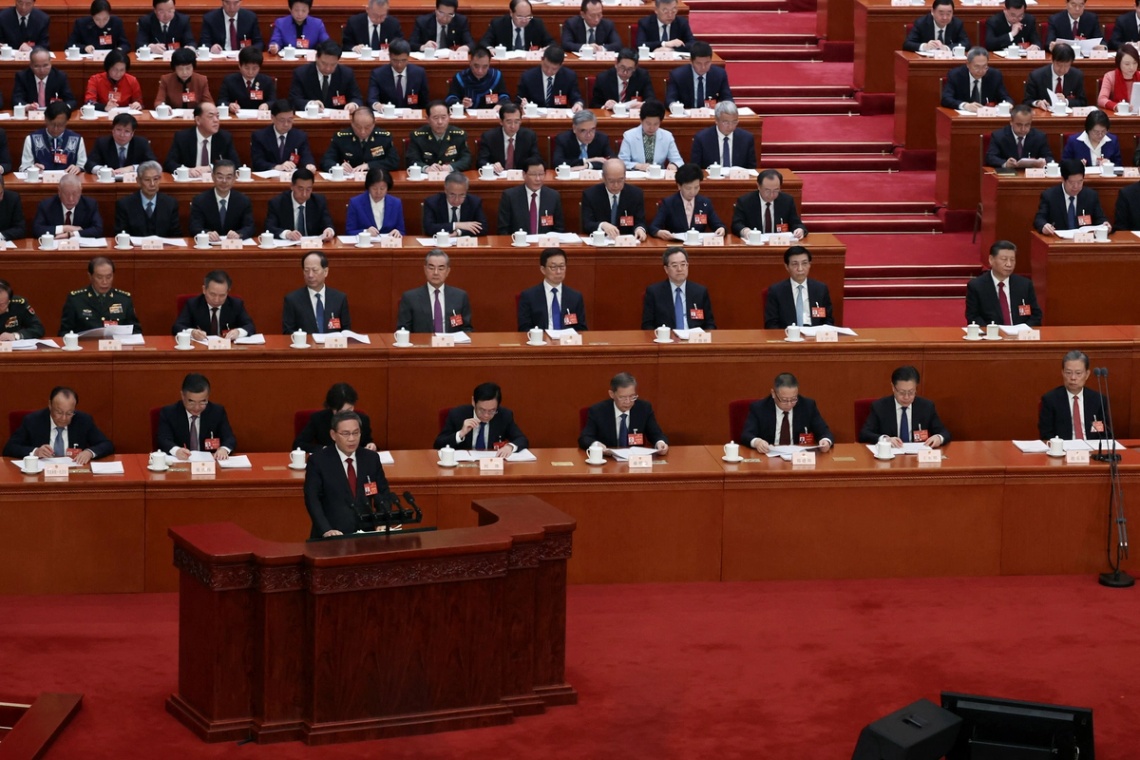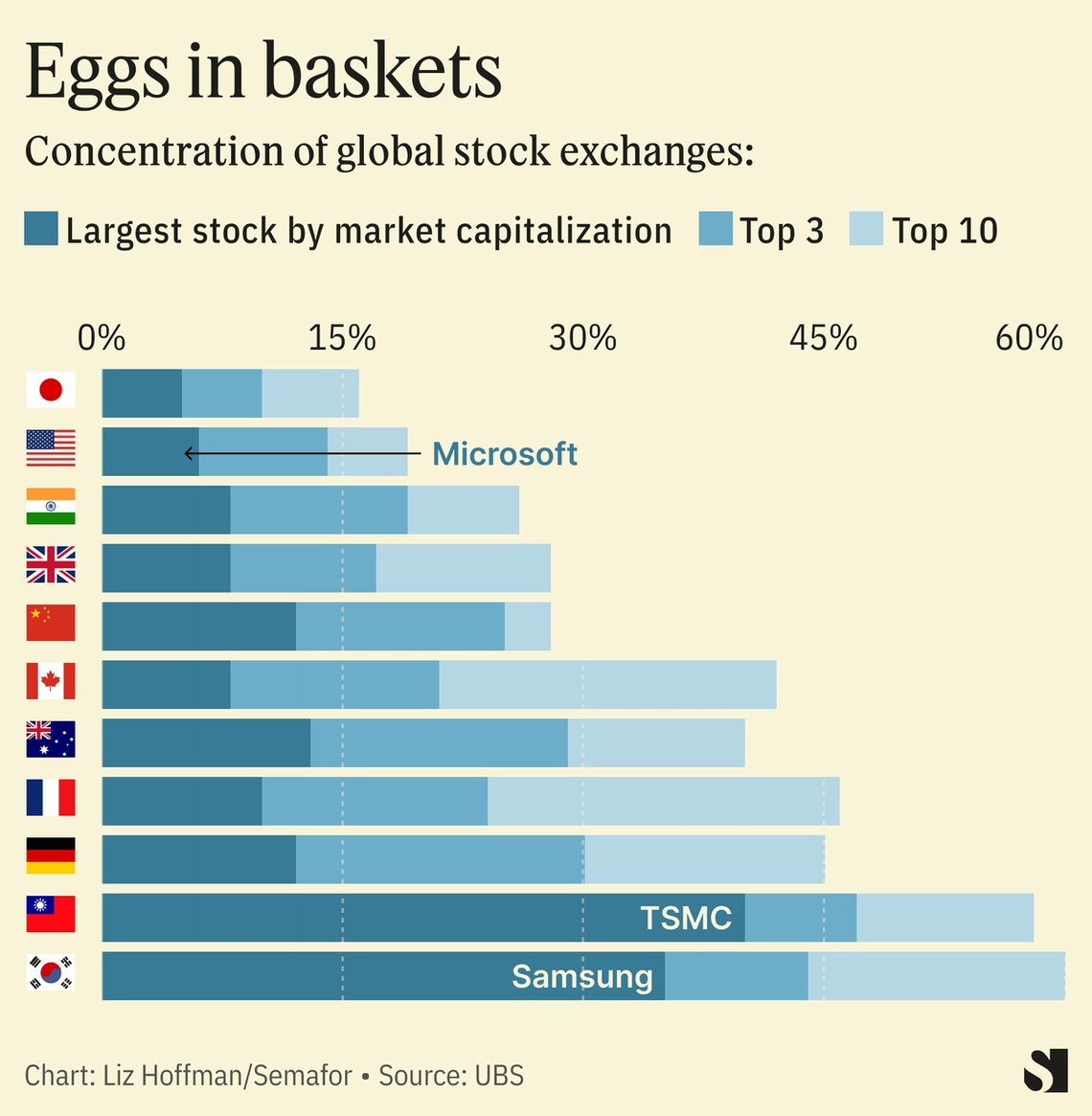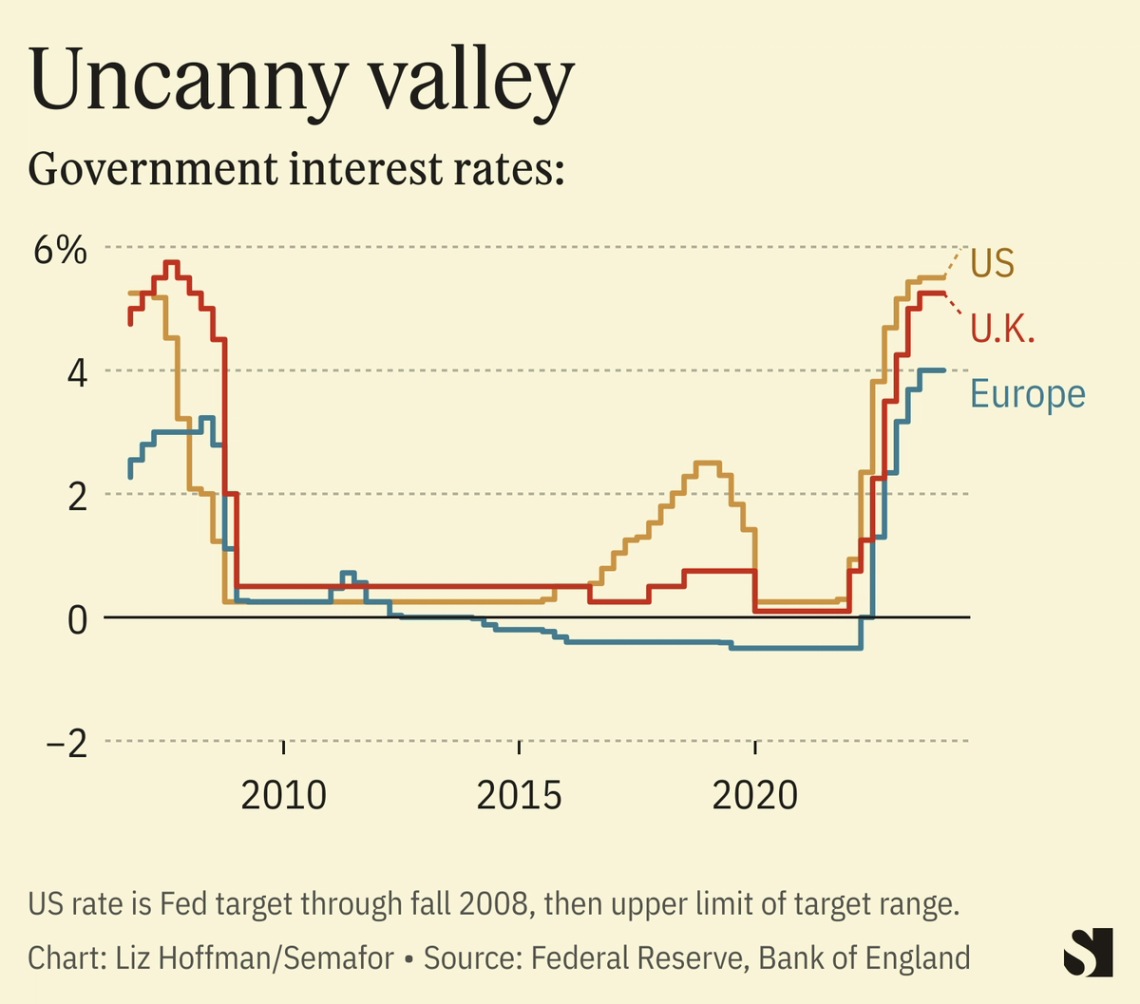THE NEWS U.S. corporate regulators are poised to pass watered-down carbon-disclosure rules, a capitulation to pressure from big business and a sign of eroding support for the ESG movement. Companies lobbied hard against the rule first proposed by the Securities and Exchange Commission in 2022, which would have required them to tally up and publish not only their own greenhouse gas emissions but those produced along their supply chains, from raw materials to middlemen to customers. The final version, which the SEC is expected to approve tomorrow, would ignore this ancillary pollution, holding companies accountable only for their own emissions and those caused by the electricity they consume. Semafor reported more than a year ago that the SEC was thinking about dropping these more-distant emissions, known as Scope 3, under pressure from corporations that argued collecting data from parts suppliers and local delivery services would be expensive and complicated. Among the loudest critics were banks, which would have to account for the downstream activities of millions of borrowers. Farmers complained that they’d be required to account for the actions of fast-food chains that bought their beef. Even Stanford University’s sustainable-finance researchers came out against Scope 3 requirements, which they said would divert corporate efforts into box-checking exercises and “away from investments that result in real emissions reductions.” The SEC’s combative chief, Gary Gensler, argued that investors needed to know how businesses would be impacted by a hotter world. Climate-change disclosures were a centerpiece of his ambitious agenda, which has taken on cryptocurrencies, activist hedge funds, private-equity firms, and other mainstays of the modern financial system (and some temporary guests like SPACs). In recent months, though, Gensler has sounded more ambivalent about the reach of the carbon rules. “We’re not a climate regulator,” he told the U.S. Chamber of Commerce, one of his fiercest critics, in October. “It’s about … what a reasonable investor finds significant.” The SEC’s reversal would be a blow to President Joe Biden’s efforts to tackle climate change through federal agencies controlled by his political appointees. He has tethered infrastructure funding to lower tailpipe emissions, expanded public-land protections, and tried, mostly unsuccessfully, to police gas stoves. Many of those rules haven’t been finalized, and time is running short ahead of November’s presidential election.  Win McNamee/Getty Images Win McNamee/Getty ImagesLIZ’S VIEW The climbdown by a Democratic SEC shows just how dramatically the political winds around ESG have shifted. When the agency proposed these rules 19 months ago, corporate America was singing from a progressive hymnal of environmental and social policies. The share of Fortune 500 companies with explicit carbon-emissions targets had doubled in the prior two years, and conservative states hadn’t meaningfully started their crackdown on ESG investing. Now energy giants are slowing their renewable-energy programs. “Transition investing” has replaced more explicitly progressive approaches to corporate governance. Jeff Ubben, the veteran activist investor who launched a socially responsible investment fund at the height of the ESG boom, shut it down in November. Even Davos un-woked itself. More broadly, CEOs are retreating from the feel-good policies they embraced in the wake of #MeToo and #BLM, promising to prioritize more than profits. The Venn diagram of environmental and diversity policies isn’t exactly a circle, but it’s close, and both were responding to the same pressures. Outside of a few key industries like insurance and real estate, there’s little evidence that climate disclosures really matter to shareholders — in Gensler’s words, that a “reasonable investor” would find them significant. The withdrawal of some insurers from Louisiana, Florida and other disaster-prone areas, and the wave of companies that left Russia after its invasion of Ukraine, suggests that companies are already pretty good at identifying those risks and shifting their businesses accordingly. Ubben told me in an email that “the role of disclosure in influencing capital flows is modest(ly positive).” But the investor, who joined Exxon’s board of directors in 2021 during the rise of climate-forward corporate actions, added that “Scope 3 reporting is not ready for prime time and it is a mistake to dilute the potential effectiveness of required reporting on Scope 1 and 2 by including it. Let’s get the emissions that can be controlled and reduced reported on and monitored first.” It’s possible that none of this matters to Gensler and that he’s motivated less by being popular than by winning. The SEC had to reverse course on bitcoin ETFs after a federal court called its reasoning “arbitrary and capricious,” and is currently fighting what appears to be an uphill battle against Coinbase that will test the limits of its oversight powers. Almost every one of Gensler’s signature rules is being challenged in court, and I’d expect at least one of them — probably this one, which forces more transparency on fund managers — to land in front of a Supreme Court that’s been hostile to federal agency overreach. “The SEC is well aware of the likelihood of a legal challenge [to the climate rules] and very much wants these rules to survive,” said Marc Rotter, a partner at law firm Ropes & Gray. Gensler may be smart to pick his battles. Read here for a view from one investor who disagrees. → |
| 






